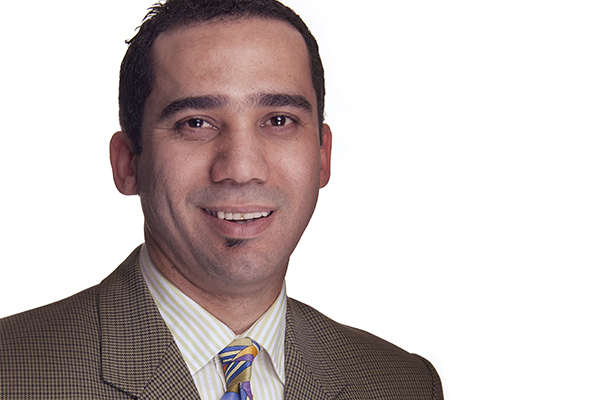Avondale academic’s Old Testament reading of New Testament prophecy
Dr Kayle de Waal is head of Avondale Seminary and senior lecturer in New Testament at Avondale College of Higher Education. The missionary teacher, minister and evangelist has served the Seventh-day Adventist Church in South Africa, the country of his birth, South Korea and New Zealand. de Waal has now written a book called Ancient Words, Present Hope, which unfolds the history of salvation through an Old Testament analysis of Revelation. Signs Publishing book editor Nathan Brown asked him about it.
Why do we need another book on Revelation? What does Ancient Words, Present Hope add to our understanding?
Revelation is so rich and complex—we won’t exhaust its meaning this side of the kingdom. I take some ideas about Revelation and attempt to re-invigorate them and to make them more relevant. The ideas include the Old Testament background to the fifth trumpet, establishing the centrality of Satan’s role in the narrative and a more gospel-focused understanding of the remnant.
You’ve worked as a teacher, pastor and scholar. How do these different roles influence what you’ve written?
The teacher in me has sought to simplify difficult concepts. As a pastor, I’m concerned readers grow in their walk with the Lord, so I’ve tried to make relevant application. As a scholar, I’m interested in new ways of understanding Scripture and also in digging deeper into what Scripture says.
In a changing world and changing church, why are places such as Avondale Seminary still important?
Avondale Seminary continues the tradition of training men and women for service in the Adventist Church and in the community. We’re totally committed to equipping soul winners and ministry leaders. The seminary is one of the thought centres of the church in the South Pacific. It’s also a champion of the everlasting gospel of Jesus Christ and the Advent message God has entrusted to us. Our staff members are producing world-class research about the Sabbath, the book of Matthew, the Great Controversy, Ellen White in her social and historical context, Adventist church history, Adventism in the context of other faith traditions, discipleship and church health.
Is there a risk of being too academic in our approach to the Bible? How do we avoid this?
We need to trust the leading of the Spirit and use good principles of interpretation. Being open to the criticism of our peers is important, too. A Christo-centric and Christo-climatic reading of Scripture is true to the divine intent.
Ancient Words, Present Hope is a textbook for a unit you’re teaching this semester. What do you hope your students will take away from the classes?
I hope my students will appreciate the historical and social context within which Revelation emerged. We’ll reflect on our Adventist heritage and read widely from Adventist scholars. We’ll also look more closely at Ellen White and the interpretation of Revelation. I also hope students will see the centrality of Christ and develop a good methodological approach to Revelation.
But more than a textbook, you also chose to write and publish for a general readership. Why?
My purpose in writing this book is pastoral, practical and missional. I want readers to have sound principles to interpret Revelation and a good framework within which to understand the book. I also hope pastors and evangelists will see fresh insights that can enrich their ministries.
As a church, how can we do better with the complex book that is Revelation?
We need to be humble and honest with Revelation and acknowledge we don’t know everything in this enigmatic book. This kind of openness and vulnerability will draw people from the community more than a “know-it-all” attitude.
Links
A clear centre amid the chaos
Book launch a reminder of Bible prophecy’s true role
Share

